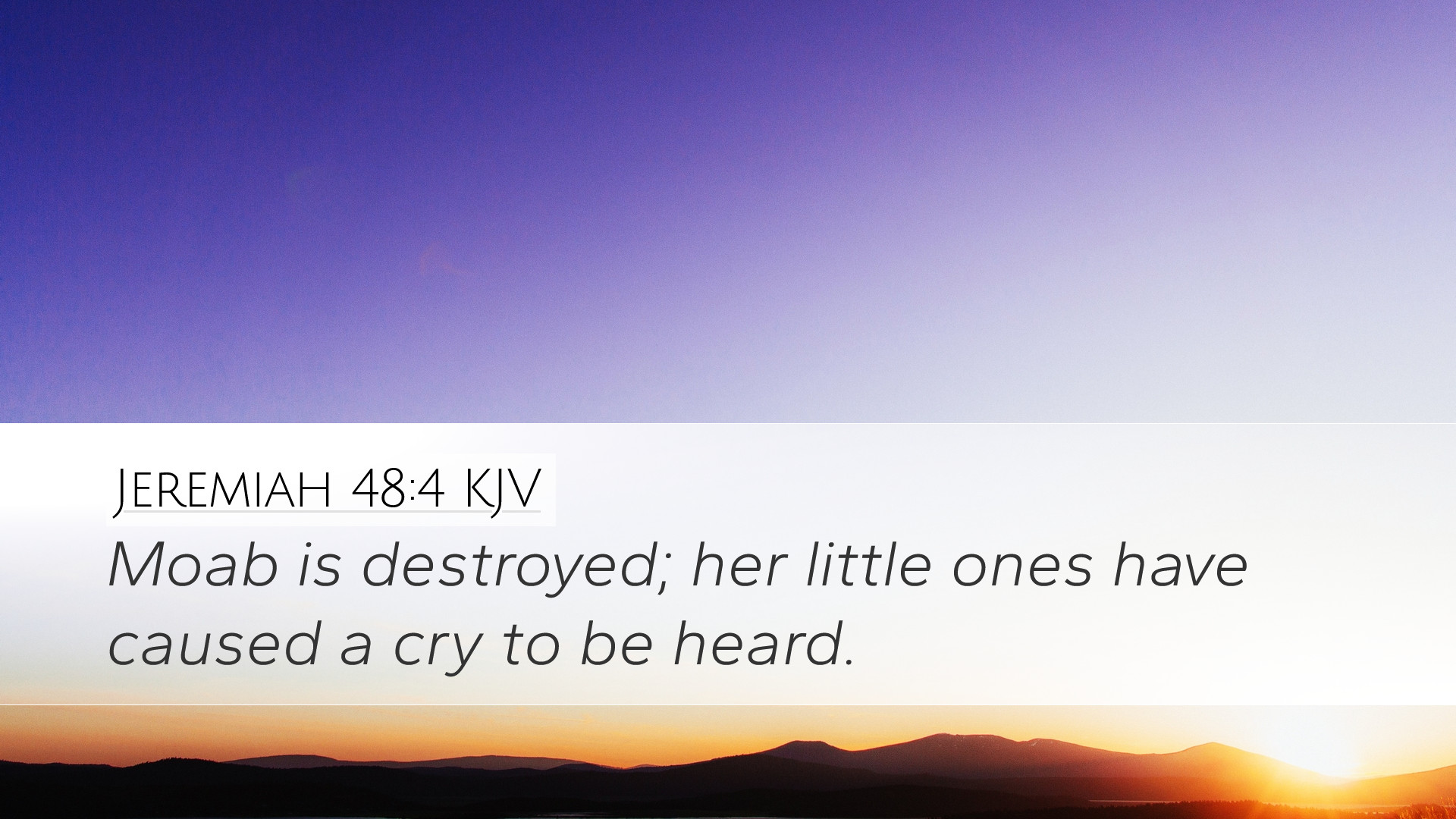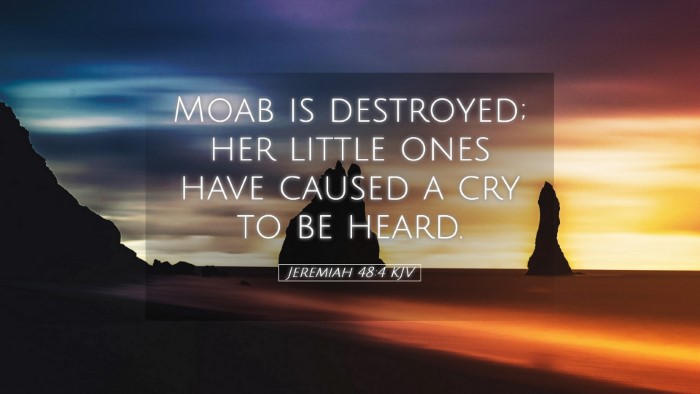Commentary on Jeremiah 48:4
Verse Context: Jeremiah 48:4 states, “Moab is destroyed; her little ones have caused a cry to be heard.” This verse is a part of a prophecy against Moab, a nation situated to the east of Israel, known historically for its interactions with the Israelites, both positive and negative.
Overview
This passage, like much of the book of Jeremiah, conveys a deep sense of lament and judgment. The prophet's declaration of Moab's destruction reflects God's sovereignty and justice. Public domain commentaries shed light on various aspects surrounding this verse, including historical context, theological implications, and pastoral applications.
Historical Context
Matthew Henry's Commentary: Henry emphasizes that this judgment against Moab is not a random act of divine wrath but the fulfillment of God's promises regarding vengeance upon those who oppose His people. Historically, Moab was involved in several conflicts with Israel, including leading the Israelites into idolatry through the enticements of Baal worship.
Albert Barnes' Notes: Barnes elaborates that the destruction of Moab symbolizes the ultimate fate of nations that rebel against God. He highlights that the term "little ones" signifies the vulnerable and innocent individuals caught in the societal collapse that follows God’s judgment. This serves as a sobering reminder of the collateral damage of sin and rebellion.
Adam Clarke's Commentary: Clarke points out the emotional weight of the verse, as "a cry to be heard" indicates not only physical destruction but also profound sorrow and loss within the community. He underscores how the devastation wrought upon Moab serves as a divine warning to those who neglect righteousness.
Theological Implications
Divine Justice: The collective insights of these scholars underscore the concept of divine justice. God, in His holiness, cannot overlook sin, and judgment is an expression of His righteous nature.
Grace and Judgment: This passage also illustrates the balance of grace and judgment. While God’s hand of grace presents opportunities for repentance, persistent disobedience leads to destruction. The fate of Moab serves as a prophetic caution for all nations and individuals.
Pastoral Applications
-
Awareness of Consequences:
Pastors can draw from this commentary to remind their congregations of the consequences of turning away from God. Just as Moab faced dire consequences, individuals today are warned against neglecting their relationship with God.
-
Empathy for the Vulnerable:
The mention of "little ones" prompts a call to compassion within the church. The fate of the innocent during national or communal collapse should encourage believers to advocate for justice and mercy in their communities.
-
The Call to Repentance:
This scripture serves as a clarion call for collective and individual repentance. Acknowledging God's righteousness while appealing for His grace is essential in fostering a culture of humility and turning back to God.
Conclusion
Jeremiah 48:4 stands as a profound reminder of the reality of God's judgment against sin and the depth of sorrow associated with it. Through the lens of historical context and theological insight, one grasps the gravity of Moab’s destruction and the lessons it imparts to contemporary readers. In light of this, pastors, students, and theologians alike are encouraged to engage with these themes in their teaching and personal reflection.


